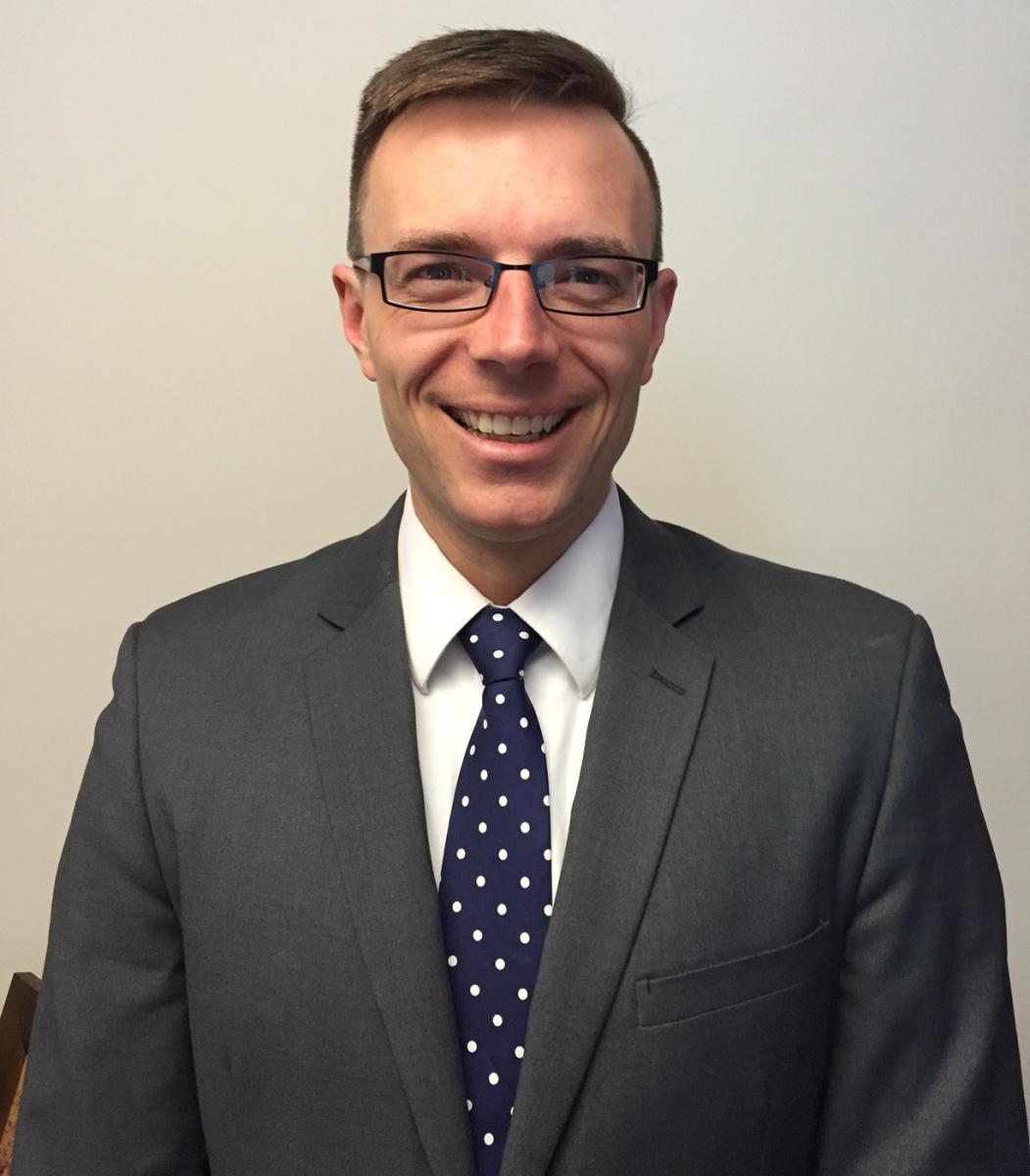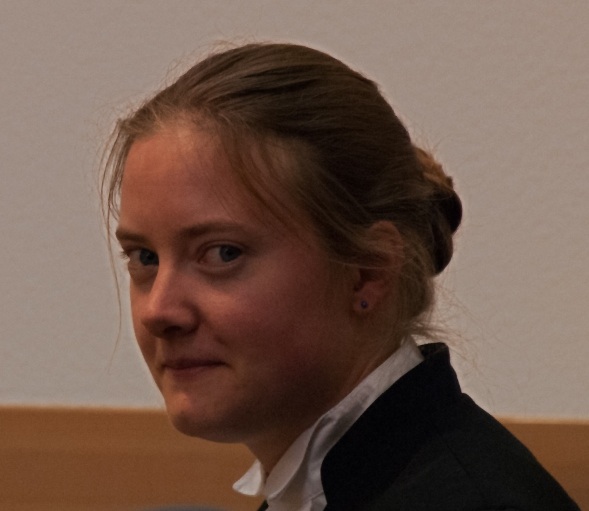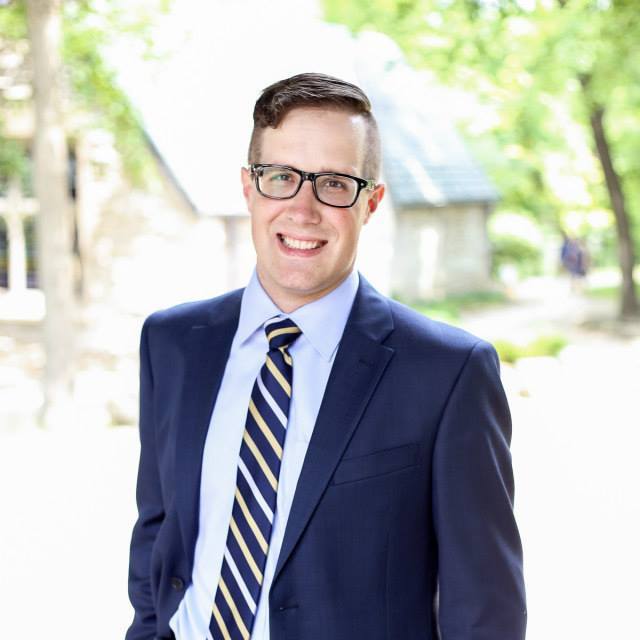

Building relationships, making change: Four alumni reflect on their work as lawyers
When he visited CMU last September to accept a 2015 Blazer Distinguished Alumni Award, Larry Plenert (CMBC ’78) remarked how one of his professors inspired him to become a lawyer.
One of Plenert’s classmates asked Dr. David ‘Doc’ Schroeder, Professor of New Testament and Philosophy, if it was appropriate for Mennonites to be lawyers.
“Doc felt that the legal profession would benefit (from) lawyers that had integrity and had good, strong values, and although we came from this tradition of ‘Stillen im Lande’ (the quiet in the land), it was OK for a Mennonite student to become a lawyer,” says Plenert, who practiced law in Abbotsford, BC for 27 years. “That was tremendous encouragement for me.”
Since Plenert’s time as a student, a number of other CMU alumni have used their degrees as a stepping-stone to a career in law. We spoke with four of them about why they chose law, and what they most enjoy about their work.
LOREN BRAUL (BTh ‘04, BA ‘06)
Loren Braul’s friends joke that he should advertise his services using the slogan, “Better call Braul,” but other than the fact that their names rhyme, Braul doesn’t have much in common with Saul Goodman, the shady lawyer from TV’s Breaking Bad and Better Call Saul.
While Goodman’s clients seek him out because he’s willing to bend—if not outright break—the law to ensure their success, Braul has attracted some of his clients as a result of his training at CMU in Peace and Conflict Transformation Studies (PACTS).
“I have had clients say that they looked through the firm’s website and they found me and chose me because they liked that I had that education, that background, and they felt it would impact how I work with them,” Braul says.
Braul first dabbled with the idea of a career in law while sitting on CMU’s Board of Governors in 2005-06 as the student representative, at which point he interacted with a few board members who were lawyers.
“I appreciated the way that they understood their responsibilities on the board and the way they communicated—how they isolated issues and spoke in a very clear and deliberate manner for the purpose of addressing the tasks at hand,” Braul says. “I liked that analytical approach.”
Braul graduated with his law degree from the University of Manitoba in 2012, and currently practices at Gary Gilmour Law Office an hour-and-a-half south of Winnipeg in Winkler, MB.
It’s a small, general practice, offering a wide range of services that includes handling real estate transactions, wills and estates, basic corporate drafting, and civil litigation.
With broken relationships and large sums of money typically at the heart of the matter, civil litigation can be emotionally taxing for clients, Braul says.
Having an understanding of the emotional side of conflict as a result of studying PACTS has helped him better serve his clients.
Highlights of his work include consumer protection cases, helping clients who are the victims of predatory loans.
“It feels good to get people out of these situations (so they can) move on with their lives,” he says.
Crafting deals and drafting contracts is also a highlight.
In those cases, “I’m building something—I’m making a relationship, as opposed to trying to pick up the scraps that are left by the time it gets to my office for litigation.”
Braul enjoys his work because it involves thinking analytically and helping others.
“You spend a lot of time with people, and they all have real problems that they are asking you to solve,” he says. “When you can... help them get as close to their (desired outcome) as possible, that’s very rewarding.”
REBEKAH (KEILAH) HIEBERT (BA ‘09)
When did Rebekah Hiebert realize she wanted to be a lawyer? Two weeks into articling, the training year that follows the completion of a law degree.
“I really loved law school, but I really worried when I got out that I wouldn’t enjoy being a lawyer,” Hiebert says. “They’re very different.”
Thankfully, Hiebert has been enjoying herself since graduating from law school at the University of Victoria in BC.
During their studies at the University of Victoria, Hiebert and her fellow students were told repeatedly that rural communities need lawyers.
After graduation in 2013, Hiebert looked in northern BC and rural parts of Alberta, and came across a job opening in Vermilion, AB, a small town with a population of 4,000 located two hours east of Edmonton.
As a small-town solicitor, Hiebert deals primarily in corporate law, wills and estates, real estate, and also practices as a Collaborative Family lawyer.
The best part of being a lawyer are those moments when Hiebert gets to be, as she puts it, a drafting nerd.
“I really enjoy when I get to... sit there and go through documents and create documents,” says Hiebert, who studied philosophy at CMU. “Of the day-to-day things that I do, that’s the most enjoyable.”
Like Braul, Hiebert says that being able to serve others is a rewarding part of being a lawyer.
“I feel that I have a responsibility to help people navigate a system that they do not understand coming in,” Hiebert says.
She adds that after studying at CMU, she was used to being self-directed and tackling a heavy workload, both of which equipped her well for law school.
Meeting a variety of people at CMU has also served her well.
“CMU was a good experience overall because you get exposed to a lot of different people and a lot of different ideas,” she says. “You need that exposure... because the law exposes you to people with all kinds of different ideas and it’s good to interact with people you might not otherwise interact with.”
“We need good lawyers in our society,” Hiebert adds. “CMU as a starting point for an education has the capacity to create people who really think, and are really mindful of what they’re doing.”
MICHAEL ALTY (BA ‘08)
For Michael Alty, closing deals is a highlight of his work.
“You work so hard for so long on one thing, and when it comes together and it closes, that’s a real high.”
Alty has worked at Dentons Canada LLP in Vancouver, BC ever since graduating from the University of British Columbia in 2014.
As a business lawyer, Alty works closely with clients and senior counsel on a variety of transactions, including financings of public and private companies, mergers and acquisitions, due diligence, and corporate reorganizations.
He also works on the regulatory side of environmental issues.
After graduating from CMU with a BA in Political Studies, Alty worked for the Government of Manitoba.
When Rotary International awarded him a US $25,000 Ambassadorial Scholarship to study abroad, Alty moved to Dunedin, New Zealand, where he pursued his interest in politics and earned a Master of International Studies.
“It was amazing—absolutely incredible,” he says of that experience. “You’re basically talking politics with people who love politics.”
Becoming a lawyer was always in the back of Alty’s mind, even from a young age.
Initially, he envisioned himself becoming a courtroom litigator. Soon after joining Dentons, however, he realized being a courtroom litigator was not the skillset he brought to the firm, nor was it the lifestyle he wanted to lead.
“It’s a very demanding area, because they’re trying to resolve something that has already happened,” Alty says.
The aim of his work, on the other hand, is to help create things, whether his client is acquiring financing or building a company.
“It’s a much more collaborative problem-solving kind of job as opposed to the more confrontational litigation style.”
He adds that working on complex transactions is satisfying.
“I feel like I am helping companies succeed, which is a really fulfilling feeling,” he says. “I like that (I’m) working closely with a bunch of lawyers to come up with the best solution for the client.”
Another highlight of being a lawyer?
“You’re surrounded by really hardworking and really intelligent people that are excited about the law,” Alty says.
JESSE EPP-FRANSEN (BA ’07)
Jesse Epp-Fransen had always considered becoming a lawyer but first took the notion seriously while serving with Mennonite Central Committee in Washington, DC.
He was inspired by the interesting policy work he saw people doing during his two-year term. When he found out they were all lawyers, he wrote the LSAT.
Epp-Fransen is currently in his final year of law school at the University of Manitoba, where he serves as president of the Manitoba Law Students’ Association.
One of the biggest highlights of law school was spending a few days shadowing judges in various Winnipeg courtrooms during his first year.
Epp-Fransen and his fellow students sat in the courtroom to hear the case and watch the proceedings, and then were able to speak with the judge presiding over that case.
“We spend so much of our time reading the final outcomes, so seeing the court process and finding out what the judge is thinking midway through was very interesting,” he says.
“It’s the law in action, before it gets written down and published in the books. That for me was a real highlight, and I found the judges that we met with intelligent and interesting and open to answering our questions.”
Epp-Fransen wants to be a lawyer because he sees it as one way he can live out his faith.
“There are these people out there who are making really important decisions about how the world works, and by and large, they’re making them from a perspective I don’t share,” Epp-Fransen says.
“The legal system is a primary system that orders our society and structures our world, so if there is injustice and inequality in the legal system, there will be injustice and inequality in the world.”
The question in Epp-Fransen’s mind is, “How do I take the theory and theology I’ve learned, and the things I believe, and make change on the ground level?”
“Jesus spent time feeding people and healing people—he didn’t spend a lot of time writing legal briefs,” Epp-Fransen says.
At the same time, “We’ve got to get involved in the legal system because that’s a big piece of the puzzle. There are all sorts of other really important pieces as well, but this is a piece that I feel suits my skills well.”
Printed from: www.cmu.ca/community/blog/176




